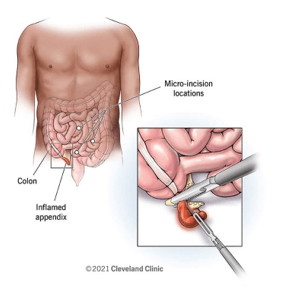When the practical nurse (PN) atempts to assist an 18-year-old client with a mild mental disability to ambulate on the first postoperative day after an appendectomy, she becomes angry and says, "PN, 'Get out of here! I'll get up when I'm ready!"
Which response is best for the PN to make?
A. "You must ambulate to avoid complications which could cause more discomfort than ambulating."
B. "I know you feel angry about the pain of ambulation, but this is a necessary part of getting well."
C. "Your healthcare provider has left specific instructions to ambulate on the first postoperative day."
D. "I will be back in 30 minutes to help you get out of bed and walk around the room today."
The Correct Answer is D
An 18-year-old client with a mild mental disability is a client who has a lower than average intellectual functioning and some limitations in adaptive skills, such as communication, socialization, and self-care. A mild mental disability may affect the client's ability to understand, cope, or cooperate with medical interventions, such as ambulation after surgery.
Ambulation is the act of walking or moving around. It is an important part of postoperative care, as it helps to prevent complications such as deep vein thrombosis, pulmonary embolism, pneumonia, atelectasis, constipation, and pressure ulcers. Ambulation also promotes circulation, wound healing, and muscle strength.
When the practical nurse (PN) atempts to assist the client to ambulate on the first postoperative day after an appendectomy, the client becomes angry and says, "PN, 'Get out of here! I'll get up when I'm ready!" This may indicate that the client is experiencing pain, fear, anxiety, or frustration due to the surgery and the recovery process .
The best response for the PN to make is to acknowledge the client's feelings, provide reassurance and support, and set a clear and realistic goal for ambulation. This will help to establish rapport, reduce resistance, and motivate the client to participate in the care plan.
Therefore, option D is the correct answer, as it shows empathy and respect for the client's feelings, while also informing the client of the expectation and time frame for ambulation. Option D also allows the client some time to prepare mentally and physically for the activity.

Nursing Test Bank
Naxlex Comprehensive Predictor Exams
Related Questions
Correct Answer is A
Explanation
Choice A rationale:
The combination of trimethoprim and sulfamethoxazole has a synergistic effect, which means that the two drugs work together to inhibit bacterial growth more effectively than either drug alone. This combination is commonly used to treat urinary tract infections (UTIs) caused by susceptible bacteria.
Choice B rationale:
The combination of trimethoprim and sulfamethoxazole does not have an additive effect that reduces the dosage and frequency of administration of each drug. Instead, it is prescribed as a fixed combination with specific dosages of each drug.
Choice C rationale:
The combination of trimethoprim and sulfamethoxazole does not have an antagonistic effect that prevents the development of resistance to either drug. In fact, the combination is chosen because it covers a broader spectrum of bacteria and reduces the likelihood of resistance development.
Choice D rationale:
The combination of trimethoprim and sulfamethoxazole does not have a selective effect that targets only the bacteria causing the UTI and spares the normal flora. It affects a wide range of bacteria, including both pathogenic and normal flora.
Correct Answer is D
Explanation
Choice A rationale:
Assigning the newly hired unlicensed assistive personnel (UAP) to clients who require the least complex level of care is not the best approach to ensure adequate care for all clients. It may limit the UAP's opportunities for learning and growth and may not fully utilize their skills.
Choice B rationale:
Asking the most experienced UAP to partner with the newly hired UAP is a reasonable approach, but it may not provide a comprehensive solution. It can be beneficial for mentorship and guidance, but it may not address all the clients' needs efficiently.
Choice C rationale:
Reviewing the UAP's skills checklist and experience with the person who hired the UAP is an important step in assessing competency. However, it alone may not ensure adequate care for all clients. Competency assessment should be ongoing and include direct observation of care delivery.
Whether you are a student looking to ace your exams or a practicing nurse seeking to enhance your expertise , our nursing education contents will empower you with the confidence and competence to make a difference in the lives of patients and become a respected leader in the healthcare field.
Visit Naxlex, invest in your future and unlock endless possibilities with our unparalleled nursing education contents today
Report Wrong Answer on the Current Question
Do you disagree with the answer? If yes, what is your expected answer? Explain.
Kindly be descriptive with the issue you are facing.
